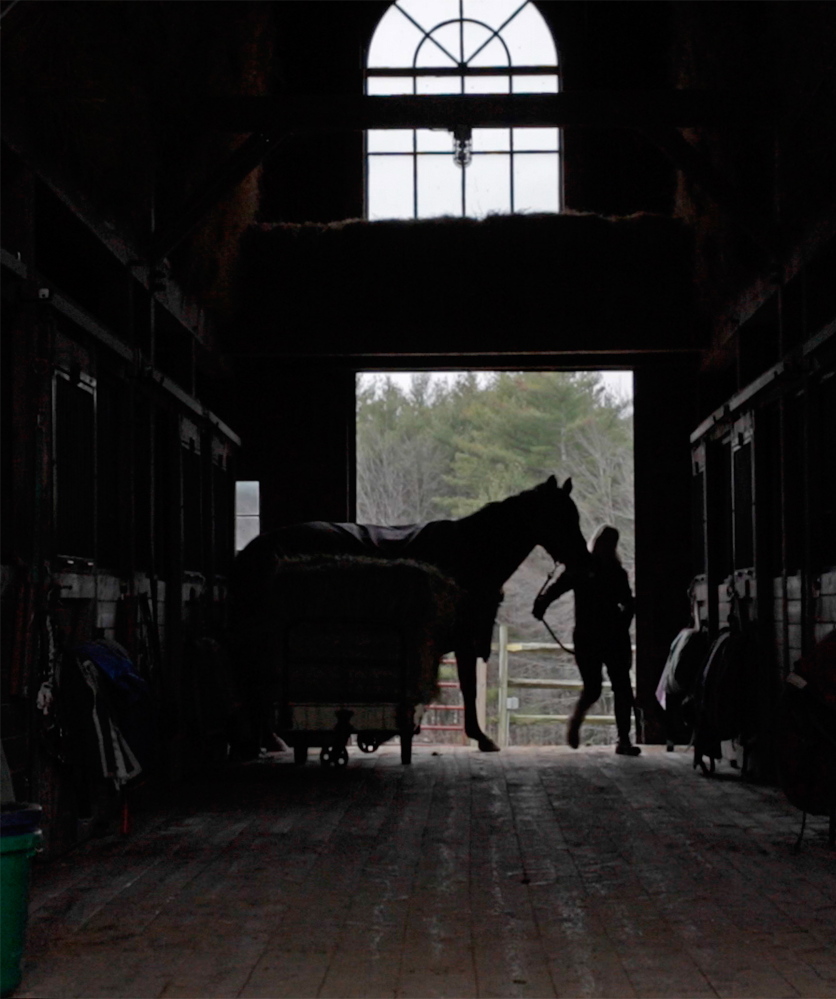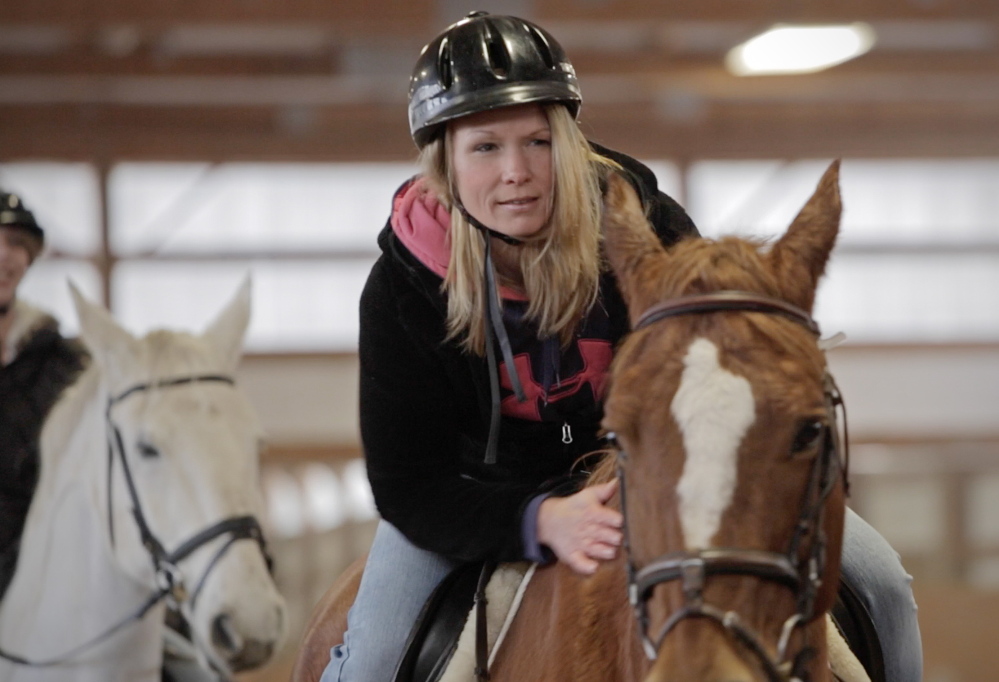Barbara Holt has spent most of her adult life in jail on drug charges. She’s used to other people telling her what to do and when to do it.
So when Holt, 49, climbs up on a horse at Carlisle Academy, a therapeutic riding school in Lyman, she gets to experience a feeling that’s pretty rare for her.
“I feel like I’m free,” Holt says. “There’s nobody in the world that’s gonna tell me what to do. I’m doing what I want to do.”
Holt, who is from Lewiston, is one of four inmates at the Southern Maine Re-entry Center in Alfred, a prerelease center that helps women make the transition from jail back to the community, who participated in a seven-week therapeutic riding program this fall.
The program, paid for with a scholarship from the Carlisle Charitable Foundation, is geared to women who have a history of abuse, domestic violence or other trauma.
It was the first time Holt had ever been on a horse.
“I thought I was gonna fall off,” she says with a laugh. “She was trottin’ and I was bouncing up and down and I was like, ‘What am I doing? Why am I on this horse?’ ”
Sue Grant, the director of therapy and adaptive programs at Carlisle Academy, can answer that question.
“For many people with PTSD (post-traumatic stress disorder), substance abuse problems, their brains are on screech,” says Grant.
Working with a horse, she says, requires the rider to be fully present – bringing that screech to a halt.
“You can’t be anywhere else,” Grant says. “So it stops that kind of brain activity from happening. It allows you to focus on the moment and oftentimes when (the women in the program) leave they’re feeling much more relaxed and more calm.”
They’re thus more able to effectively deal with the issues that landed them in jail. After each riding session, there’s group therapy.
Carlisle Academy is based at Spring Creek Farm in Lyman, a 150-acre property of woods, fields and fenced-in pastures, with two indoor riding arenas.
Sarah Armentrout, who founded the program with her husband in 1998, says learning to ride gives people a sense of accomplishment and control.
“Because (the horses) are so big and carry you in this graceful, proud way, you do have that sense of pride when you’re riding them. And then you start thinking, ‘I can … canter around in a big field and be able to control this horse.'”
Learning to control something bigger than herself was a revelation for Heather Fields, who has been battling addiction for 25 years.
Fields, 40, is scheduled to leave the Re-entry Center in January after serving time on drug-related charges.
“It’s helped me take control of what I want to do with my life,” says Fields. “It’s helped me be aware that I can take another path” – a path that steers clear of what she describes as the “dark hole of using.”
“You start to realize that there is another way,” Fields says, “that (there are) other things that brighten your day, that fill you up.”
For inmate Lisa Gray, who grew up with horses, being able to ride again has given her a sense of peace and well-being, something she hasn’t felt for a long time.
“For a lot of these girls, it’s outside their comfort zone,” Gray says. “For me, it put me back in it. I’ve really enjoyed it. It made me realize what I’ve missed.”
Rebecca Tryon, the community program coordinator at the Re-entry Center, says she has watched the women in the program become more confident and trusting.
“Women who didn’t think they could get on a horse and make it do what they wanted,” Tryon says, “who weren’t confident they could control an animal, they’ve developed a trust with the animal and with themselves.”
Armentrout says she has witnessed the healing power of the bond between humans and horses time and time again.
“Freedom is something we hear,” Armentrout says. “Unconditional love is something we hear all the time. That sense of no judgment.”
For the women from the Re-entry Center, it’s the “no judgment” that often means the most.
“Many of the women have said this is the one time they can forget that they’re in prison … and not someone who’s incarcerated or an addict,” says Tryon. “They can be themselves.”
Send questions/comments to the editors.




Comments are no longer available on this story